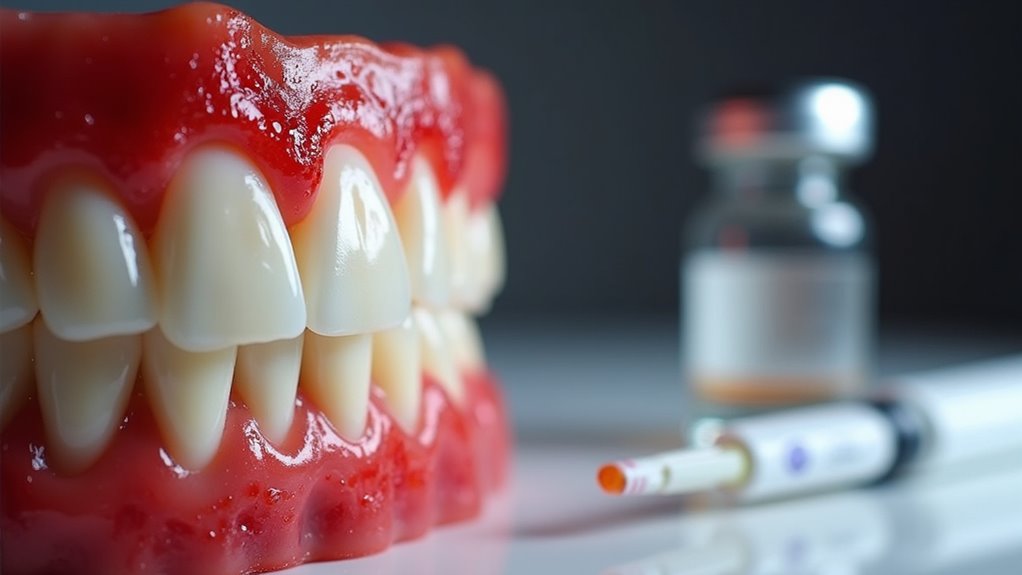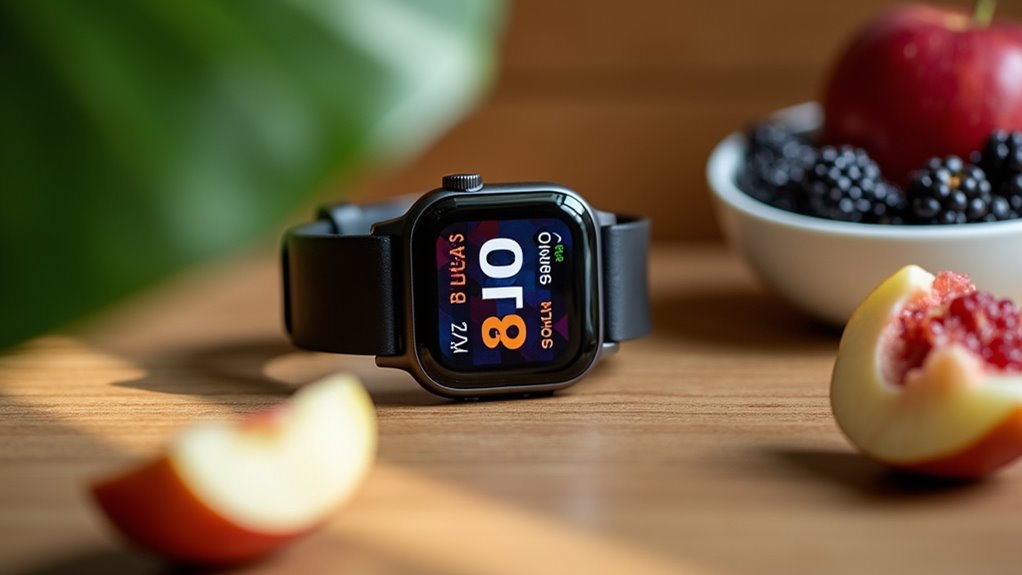Why aren’t more people talking about the deadly connection between their teeth and blood sugar? It’s right there in our mouths – a ticking time bomb most of us ignore until it’s too late. Approximately 415 million people worldwide have diabetes, and countless more remain undiagnosed. Meanwhile, a staggering 80% of adults over 30 have some form of gum disease. Coincidence? Hardly.
The relationship between oral health and diabetes isn’t just a one-way street. It’s a vicious cycle. People with periodontal disease face a 20-30% higher risk of developing diabetes. Let that sink in. Your bleeding gums might be the canary in the coal mine for a lifetime of insulin injections and complications. Genetic factors can significantly increase your lifetime diabetes risk, especially if both parents have the condition.
The mouth-diabetes connection isn’t just correlation—it’s a dangerous feedback loop threatening your metabolic future.
Poor oral health doesn’t discriminate, but its effects aren’t distributed equally. Low-income communities face significant barriers to dental care. Rural residents and those with limited education show even stronger connections between bad teeth and diabetes risk. Shocking? Not really. Just another example of how health disparities compound themselves.
Here’s something interesting: filled teeth may actually protect against diabetes. Why? They reduce oral inflammation. So maybe that dreaded dental visit is worth it after all. Your future pancreas will thank you.
The science is clear. Chronic periodontal disease creates systemic inflammation that worsens insulin resistance. Your mouth is fundamentally sabotaging your metabolism. Add smoking to the mix, and you’ve got a perfect storm for health problems. Smoking significantly elevates the risk of oral health complications in people with diabetes. Periodontitis is now considered the sixth major complication of diabetes. Sixth!
Dental offices could serve as frontline detection centers for diabetes and other chronic conditions. But our fragmented healthcare system makes this nearly impossible. Data collection remains spotty at best. Meanwhile, millions suffer from preventable complications.
The solution isn’t complicated. Better oral hygiene. Regular dental checkups. Blood sugar management. In Hungary, the problem is particularly severe with 3.5 billion individuals globally affected by oral health disorders, surpassing other non-communicable diseases. But healthcare policy remains stubbornly siloed. Teeth on one side, “real” health on the other. Until we bridge this gap, both diabetes and oral health crises will continue their parallel, destructive paths.





